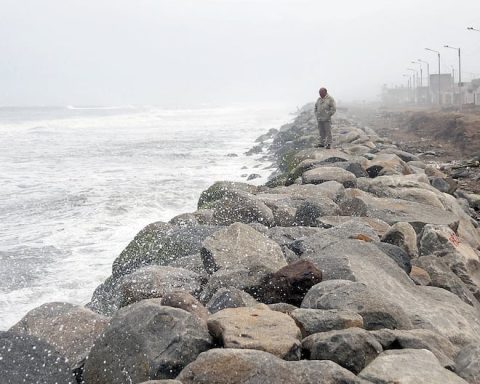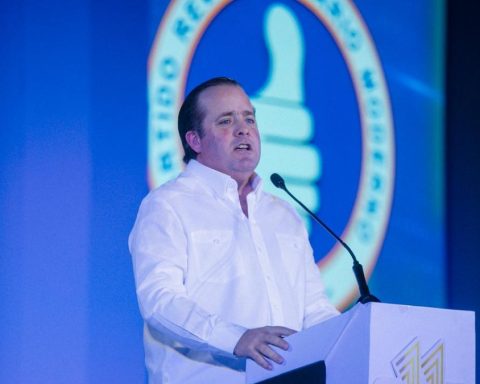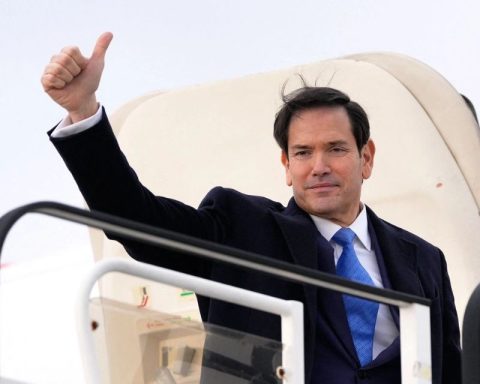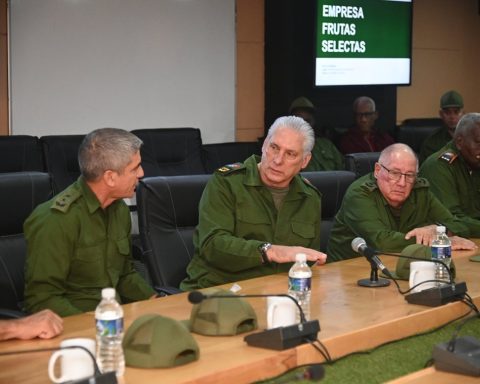The Government of President Boric is concerned with an adverse scenario, with two recent episodes that further stress its faltering agenda: on the one hand, the negotiations between the PDG and Chile Vamos, which could prevent the ruling party deputy Karol Cariola (PC) from assuming the presidency of the Lower House next November, with the risk that the right could eventually reach that position of power in order to raise its own agenda. And on the other hand, the emergence of a parallel dialogue table for the constitutional proposal, which will meet this Thursday, at the same time and in the same place as the official discussion space – the headquarters of the National Congress in Santiago.
After the official table of conversation decided to create a smaller space to specifically discuss the constitutional bases of the new proposal – giving rise to the so-called “group of eight” – different benches and independent parliamentarians noted their discomfort, feeling excluded of the constituent dialogue. This was announced this Tuesday in the Senate by a group of deputies, deputies and senators headed by Matías Walker and Ximena Rincón (DC), giving rise to the formation of a parallel dialogue table. The strange thing is that three hours later – and with the approval of the president of the Chamber, Raúl Soto – both Walker and Rincón were once again incorporated into the official meeting this Thursday, causing discomfort in those who placed their trust in their leadership to promote this parallel space.
It is a decision that some opposition parliamentarians consider “erratic”, interpreting that in said action the intention of both DC senators to generate the necessary attention so that they were summoned again to the official dialogue table could have been hidden, where in the last meetings, his tense party has been represented by Senator Francisco Huenchumilla. In this sense, the parliamentarians who feel betrayed by Walker and Rincón assume that this decision could be part of a strategy to return to a place of interference, after having lost the prominence they had during the Rejection campaign.
In this regard, Senator Matías Walker himself explained that the purpose of the formation of this parallel table was based on the idea of not excluding anyone from the dialogue, beyond this “group of eight”, where, in his opinion, there was the paradox that there was a greater participation of representatives of the Approval, something “incomprehensible”, understanding that this was the option defeated in the exit plebiscite. In this way, the parliamentarian adds that this request for non-exclusion was quickly accepted by the presidents of the Chamber and the Senate, for which he finally decided to join the official table to “settle the issue.”
In addition, Walker assures that it was not his intention to create an alternative space to the official one, but that what was sought was “to ask that no one be excluded, where we propose that what corresponds is that we participate in a single table.” However, members of this parallel space confirmed that the very fact that they meet this Thursday at the same time as the official table is a sign that they want to install themselves as an alternative instance, that represents the independent world and the world of the civil organizations, who, according to their opinion, feel marginalized and excluded from the discussion about the continuity of the constituent process.
From the Republican Party, for example, Senator Rojo Edwards explains that “what we have seen so far is a permanent spirit of exclusion, where we have observed that certain political forces are not invited, so it seems to me that the way in which these discussions have been conducted is not the right one, and the place to talk is precisely in Congress”.
From the ruling party, meanwhile, they lamented the emergence of this parallel space, and criticized the position adopted by Senators Walker and Rincón. One of these critical voices was that of the deputy and president of Acción Humanista (AH), Tomás Hirsch, who lamented what seemed to him “a tantrum by some senators who I don’t know if they still belong to the DC or not, where they threaten to is going to form a separate group, I think it is totally contrary to the spirit that they have to encourage to advance towards a new Constitution”.
In this sense, Hirsch adds that he fails to understand the interest of joining this talks table, on the part of parliamentarians opposed to a new Constitution. “If what we are agreeing on is the mechanism, the procedure and different aspects regarding how to generate this new Magna Carta, those who do not want to participate in this process, I do not understand why they should be at the same table. Those who are for a new Constitution they are welcome to talk”, says the president of AH.
But the truth is that the bilateral instance that brings together the ruling party and the opposition, in addition to the DC represented by Senator Huenchumilla, had a severe setback this Wednesday, in its third meeting in the National Congress. It is that in the meeting it was not possible to reach an agreement on the institutional bases of the new constitutional proposal, for which they still do not have a document that unites the positions of the different political sectors. In this regard, the president of the PC, Guillermo Tellier said that “we have been determining a more refined border that takes into account the aspirations of both sides and that the body that is going to be elected has a wide margin for discussion, on that there is agreement ” .
The role of Walker and Rincón, in response to the “group of eight”
What is certain is that the promoters of this parallel space for constituent dialogue – among them the PDG, Republicans and independent parliamentarians, such as the members of the RN Kusanovic, Aravena and Castro bloc – have provoked discomfort in the parties that make up the official talks, in addition to of those leading this process: the president of the Senate, Álvaro Elizalde (PS); and the president of the Chamber of Deputies, Raúl Soto (PPD). Both parliamentarians promoted the extension of the dialogue table this Thursday, adding in addition to Walker, representatives of Republicans and the PDG – who will be in both instances, the official and the alternative – and understanding that Ximena Rincón will not attend due to a trip out of the country.
From the PDG, a party that is the protagonist in the two episodes with the greatest political connotation of the week: both in the emergence of this parallel table, as well as the possible fall of the agreement that appoints Karol Cariola as the new president of the Chamber, they come to the step of the controversy. One of the members of his bench of deputies and a member of this alternative discussion space, states that “just as Chile Vamos and the ruling party have bilateral meetings, we as PDG, with different benches, with the independent world and with social organizations, We also have bilateral meetings, for the same reason, the same condition.”
From said conglomerate, the deputy Gaspar Rivas was more explicit, assuming that “perhaps Senators Walker and Rincón were not looking for a table parallel to the kitchen that the constituted powers are carrying out behind closed doors, with the presidencies of the Chamber and the Senate. that what they were really looking for was to make a gesture so that the kitchen would open the door, and from there they would be invited to participate in this space”.
Meanwhile, the political analyst and academic at the University of Talca, Mauricio Morales, considers that the Rincón/Walker duo was the protagonist in the context of the plebiscite, and – at least until yesterday – a simple supporting actor in the discussion about continuity of the constitutional process. Given, what he interprets as a predominance of the Approval leaders in this debate, what this duo did was explain that the victory had corresponded to the Rejection and not to the Approval, for which they demand greater protagonism.
In this sense, Morales believes that “rather than significantly delaying the constitutional process, it makes it a little more complex due to the entry of new actors to the table. In the long run, this may facilitate support for the agreement when it is voted on in Congress.” “This duo is strong in the Legislature and this was immediately understood by the president of the Chamber, who had an open stance. Consequently, we will have a process that will probably be delayed, but that may conclude with a result of consensus and expeditious processing in Congress”.
Finally, and regarding the decision that triggered the controversy, which was precisely the formation of this “group of eight” to lead the discussion on the constitutional bases, and which did not consider representatives of the independent caucuses, it was an initiative of the president of the Senate, Álvaro Elizalde, whose purpose was to advance faster in the talks, understanding that, as detailed by participants in said space, “the initial negotiating group was a kind of school canteen, with dozens of people and it was very difficult to advance “. Now, and after the shock generated by the announcement of the formation of a parallel dialogue table, the situation becomes more complex, and this Thursday the National Congress building will host the two meetings, which at the same time, will try to impose their terms, around the discussion for a new Constitution, which could lengthen its process. The first setback was resisted by the bilateral instance between the opposition, the ruling party and the DC, which this Wednesday failed to reach an agreement for the signing of a document regarding the institutional bases of the new proposal. The next few weeks will be decisive.


















